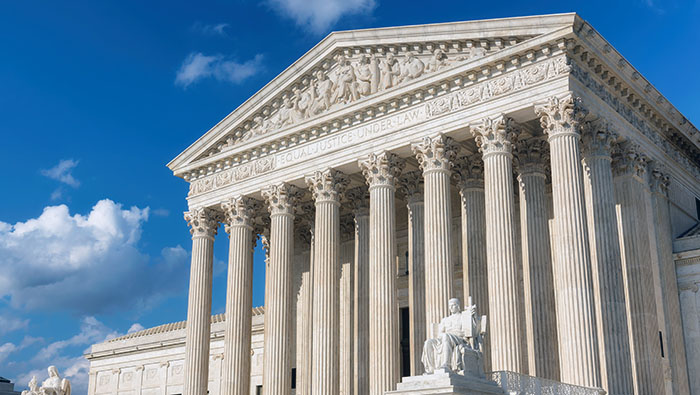Starting January 7th, 2022, The U.S. Supreme Court (Court) will hear arguments on the Occupational Safety and Health Administration’s (OSHA’s) COVID-19 vaccine Emergency Temporary Standard (ETS). In addition, the Court will listen to arguments on the Centers for Medicare and Medicaid Services (CMS) vaccine mandate. Previously, the Sixth Circuit Court had lifted the stay on the ETS.
Overview of the OSHA Standard
The ETS, published in the Federal Register on November 5th, 2021, covers employers with at least 100 employees. Presently, this standard is scheduled to go into effect on January 10. In summary, the standard requires covered employers to develop, implement, and enforce a mandatory COVID-19 vaccination policy. Therefore, covered employers must require their employees to either:
- receive a COVID-19 vaccination; or
- undergo regular COVID-19 testing and wear a face covering at work.
Additional Requirements Under the ETS
Furthermore, the ETS does not require employers to pay for face coverings or testing. However, they may need to pay for testing under other laws, regulations, and collective bargaining agreements. Furthermore, employers must provide paid time for workers to get the COVID-19 vaccine. Additionally, the ETS requires employers to do the following:
- Determine the vaccination status of each employee by obtaining acceptable proof of vaccination;
- Maintain records and a roster of each employee’s vaccination status;
- Require employees to provide prompt notice when they test positive for COVID-19 or receive a COVID-19 diagnosis, and remove such employees from the workforce, regardless of vaccination status, until they meet required criteria;
- Ensure each worker who is not fully vaccinated tests for COVID-19 weekly (if the worker is in the workplace at least once a week) or within seven days before returning to work (if the worker is away from the workplace for a week or longer); and
- Ensure that, in most circumstances, each unvaccinated employee wears a face covering when indoors or when occupying a vehicle with another person for work purposes.
Previously, on November 6, the United States Court of Appeals for the Fifth Circuit issued a temporary stay on the ETS. Later, the Sixth Circuit won a Multi-District Litigation lottery to hear arguments levied against the mandate. Subsequently, that court lifted that previous stay as of December 17.
Overview of the CMS Vaccine Mandate
Earlier, on November 4th, 2021, the Federal Register published an interim final rule created by the CMS. Markedly, the published rule required staff working in Medicare- or Medicaid-certified providers to:
- have the shots necessary to be fully vaccinated against COVID-19 by January 4th, 2022, and
- to receive their first shot before December 6th, 2021.
However, on November 29 and November 30th, 2021, the U.S. District Court for the Eastern District of Missouri and U.S. District Court for the Western District of Louisiana issued preliminary injunctions against the rule’s implementation. Accordingly, on December 2nd, 2021, the CMS released a memorandum verifying that it will not enforce the provisions of the interim final rule while there are court-ordered injunctions in place.
Supreme Court Will Hear Arguments on ETS and CMS Mandate
On January 7, the U.S. Supreme Court (Court) will hear arguments regarding both the ETS and the CMS vaccine mandate. Firstly, the Court will dedicate one hour of arguments whether to reimpose the previous stay of the OSHA standard. The Court expects to address five main arguments from the opposition:
- OSHA does not have authority to issue the ETS and they have not demonstrated that “grave danger” exists to justify it.
- The ETS is underinclusive as a sweeping mandate and doesn’t account for employers with less than 100 employees.
- The ETS raises a “major question” better handled by Congress and there has been no clear expression of intent by lawmakers to expand OSHA’s authority.
- OSHA’s delay in issuing the ETS in relation to the pandemic indicates there is no emergency.
- The rule will cause irreparable harm through high compliance costs and staffing issues.
Secondly, the Court will hear arguments on the CMS vaccine mandate for healthcare workers. Under this mandate, up to 17 million workers at over 76,000 U.S. healthcare facilities across the country would need to receive a COVID-19 vaccine. The Court expects similar arguments regarding the ETS to apply to the CMS vaccine mandate, as well. Oral arguments on both the ETS and the CMS mandate will be available live to the general public.

